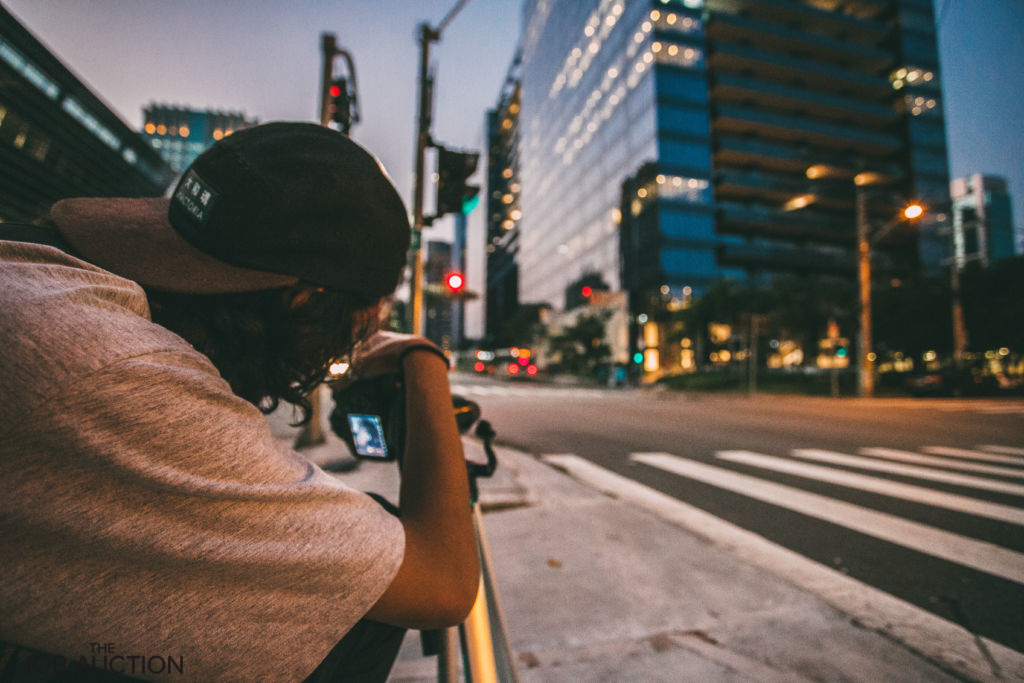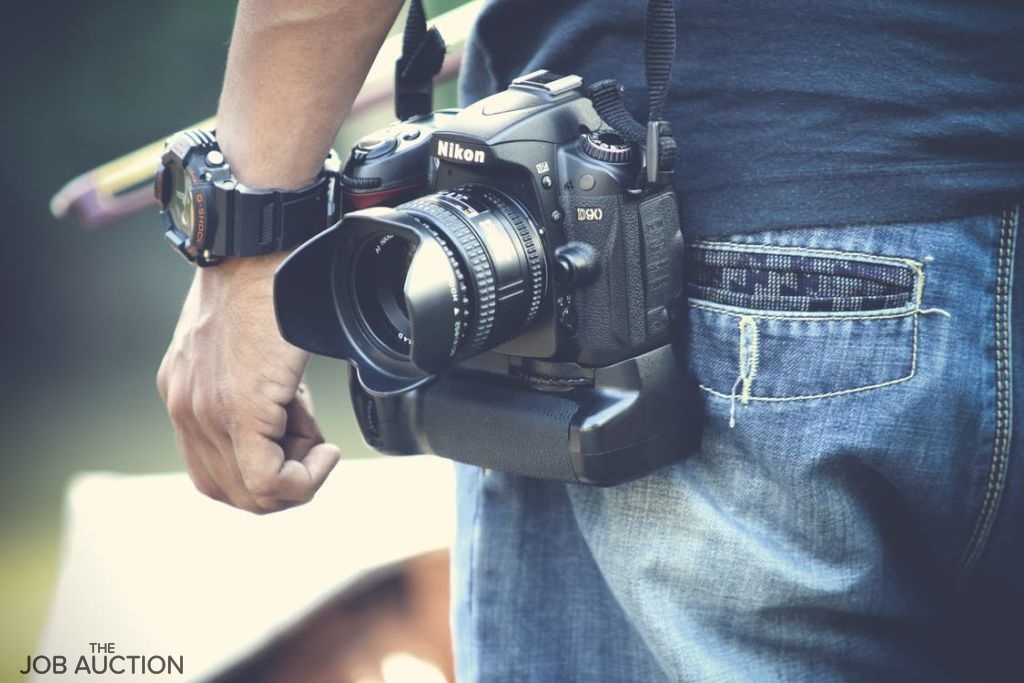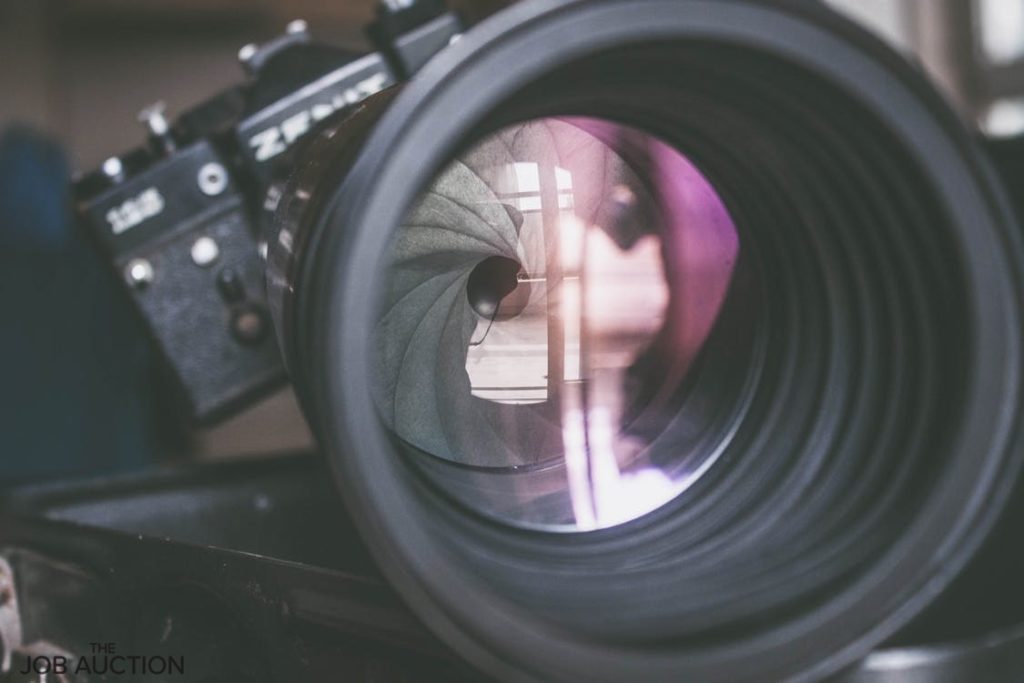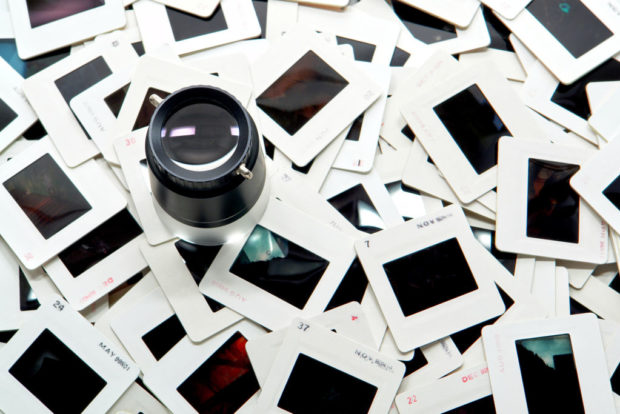Today we’re interviewing photographer Chris Dart. He tells us how his journey began as he jumped on a train to London with only a dream in his pocket and established himself as a respected industry creative. We capture his story; from a man without a camera to a runner, going without sleep two nights a week for seven months to pursue his dream and how he established himself as a photographer and businessman in his own right. How did this London photographer turn a passion into a career? Read on to find out more…
How did you become a photographer? What was your path in education?
I went to University to study Film Production Technology at Staffordshire University, my ambition was always to become a Film and Music Video director. After University I took a chance in moving to London without secured work, in search of a job in the media industry. I worked my way up in a production company from a runner to a Commercial Editor. With a steady income in place, I then proceeded to follow my ambitions in Film. Having connections with various bands and a huge love for music I began following and filming acts, creating tour and music videos. It was on this adventure that I got my first taste for photography. A band I followed needed some promotional shots and I gave it a go and found that I really enjoyed every part of the process. From here, my love for this storytelling format began to grow. Being a creative person, photography allowed me to exercise my creative side in a format that has a quick turn around, unlike film.

Is getting a degree in this subject necessary to make it in this field?
A degree is definitely not a necessity in Photography. In fact, I have found a lot of the top photographers never ‘studied’ photography and some even dropped out of university as they found that way of learning was not for them. I’m not saying university is a bad thing, it is entirely based on the individual and how you like to learn.
In my opinion, the best way to learn is by surrounding yourself with other photographers and learning from them and just shooting as much as possible. This is the only way you are going to improve. Shoot, then analyse and learn from your mistakes. You’ll soon find your style. Just get out there, network and collaborate with other artists!
When and how did you decide your passion was worth the risk of investing emotionally and financially?
I think if you are really passionate about something and know in your heart that this is an area of work that you want to be in, risk-wise, it’s not a leap of faith, you’re already emotionally hooked! After graduating university, all I knew was I needed to own my own camera and not having one, I had to do whatever I could to be able to afford it. So when I first moved to London I did everything I could to buy myself a laptop and a camera. This was the first goal. I worked 2 jobs for 7 months. This demanded the usual working day, 5 days a week at a production company and 3 night shifts. For those 7 months I didn’t sleep on a Friday or a Sunday night and I worked 99 days without a day off. The 100th day was Christmas Day so I at least managed to get a day off then! After those 7 months, I had achieved my goal of getting a camera and laptop and was able to transition to maintaining one job, get some sleep and prepare, in my new found free time, to start my film and photographic adventure.
One thing I would say to any new photographer though is that you don’t need expensive equipment to create amazing shots. You first need to train your eye, all the money in the world won’t make you instantly be able to shoot great images. Just get any DSLR and start shooting and learn. Invest in a good lens. At the end of the day, quality comes from the lens and understanding what ones help create the best shot for the type of work you are doing.

Was photography always a hobby as well as a talent you have?
Photography was ‘just’ a hobby that spiraled into something else, yes. I feel my background in film and editing has definitely helped train my eye, so I stepped into Photography quite easily.
Has everyone around you always been supportive of your career choice?
Definitely not! You’ll always find that there are supportive and some, not so supportive people. Many have told me to just settle for a steady job and give up, as let’s face it; it is not an easy path, it’s a highly competitive industry. However, I have found that this has always been good fuel for me. Competition gives me the fire to prove others wrong and show that I can make a success of doing something that I love. It comes down to self-belief and confidence in yourself at the end of the day. If you have the belief and desire to become the photographer you know you can be, are able to step out of your own way, can throw yourself in at the deep end, accept that you will have failures and are able to look at these failures as learning curves -you Will go far! Surround yourself with people that are supportive of your dreams.
How do you break into such a competitive and saturated market? And how do you know that you have what it takes?
Before you can really make an impact on the photography scene I think you need to have found your style. Once you have found this you’ll find it easier to sell yourself to potential clients. If you specialise in one area of work (whether that is portraiture, fashion, music etc) this will also vastly help. The more specialised you are, the more achievable it will be, since, covering too many areas will just overstretch you. Once you have this down then you need to throw yourself into that world and shoot as much as you can in that field of work. Be outgoing and meet as many people as you can inside the industry. If you love what you do, and what you’re shooting, you’ll find it easy to shoot over and over. The more contacts you make in the industry the more work you’ll get. Simple.
How do you know you have reached a professional level, in order to start charging for your work?
I think that is only something that the individual photographer can answer. I think when you know you are ready and feel that you are confident in your skills, then you are ready. It all comes down to experience and confidence at the end of the day.

Can you always trust your self-judgment?
I find that I am my biggest critic. I’m a perfectionist so I am always strongly critiquing my work; it is my best and worst trait. I find that if I am unable to trust my judgment it often means that I am too close to something. If it’s a matter of knowing what are the best images, I find that taking some distance makes all the difference. When I come back to the project with fresh eyes I find that I am able to make a clear and precise judgment. If it’s business judgments that I am not sure about and I know someone that has far more experience in the industry than I have, I may ask for their advice and ask for the advantages and disadvantages. Then I’ll make a calculated decision based on that. I do think you always have to trust your own judgment call on what is right for you in that moment in time.
Is it important to know the business side of photography?
Knowing the business side of photography won’t make you a better photographer. It will ultimately make you a more financially successful one and one that has a bigger audience. I don’t think it is important initially when finding out the type of photographer you want to be. That said, it is something I wish I knew more about when finding my feet in the industry. The more you can familiarise yourself with the business side of things the better. The best way to do this is to work and collaborate with other photographers and talk about workflows and business. Gain as much experience as possible.
How important is it to be able to interact with your clients? Are their requests ever limiting of your choices as far as creativity is concerned?
The client at the end of the day is the boss. It is extremely important to be able to interact with them to ensure you deliver exactly what they are after. Of course, what they want can ultimately affect the creativity of a shoot but if they’re paying, you have to deliver on their request!
I think interactivity with the client is one of the most important things in this industry.
In the case of the client also being the subject, then the more comfortable they are with you, the better the images will be.

What do you want to achieve in life? How can your job help you in this sense?
Ultimately in my work, I want to master my craft and visually tell exciting stories through photography and film. In life, I just want to enjoy every day and have a healthy balance between life and work. My job is currently making me smile so it is helping in that sense!
What is the best advice you can give to an aspiring photographer?
Shoot as much as possible, find your style and the area of photography you want to specialise in and throw yourself into that world to glean as much experience as you can. Be outgoing and meet as many people in the industry as possible. Collaborate with other like-minded photographers and absorb as much knowledge from them as possible. Finally, just concentrate on the area of work that makes you happy and you won’t feel like you ‘work’ a day in your life.
To book Chris as a photographer, navigate to his website here.








